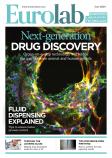Horizon Discovery Group, the international life science company supplying research tools to organisations engaged in genomics research and the development of personalised medicines, today announced it has entered into a non-exclusive license agreement with ERS Genomics to access intellectual property (IP) relating to the CRISPR/Cas9 gene editing system.
Under the terms of the agreement, Horizon has rights to use the technology, which is based on the work of Dr Emmanuelle Charpentier and her colleagues, for research applications including development and sale of research tools, kits and reagents, performance of research services, creation of genetically modified disease model cell lines, development and production of reference standard material for molecular diagnostics and for internal target identification and validation research efforts.
The acquisition of this important CRISPR IP is in line with the company’s aims outlined at the time of its IPO and further strengthens Horizon’s long-term position in the market for this cutting-edge gene editing technology. Access to a broader CRISPR IP portfolio will allow the technology to be deployed extensively across Horizon’s products, services and leveraged R&D and further enhance the attractiveness of the Horizon GENESIS offering to customers.
“Horizon Discovery’s ambition is to be the market leader in CRISPR technology, and by expanding our portfolio of intellectual property rights in this area we aim to ensure that our customers, both now and in the future, will have unencumbered access to this innovative new gene editing technology,” said Dr Darrin Disley, CEO of Horizon Discovery Group. “We believe that the ERS Genomics IP, based on the work of Dr Charpentier and her colleagues, is particularly important and so we are very pleased to be able to add it to our expanding portfolio of patent rights in this area on behalf of our customers.”
Charpentier was principal co-author on a seminal publication suggesting how the CRISPR/Cas9 system could be adapted from use in bacteria for broad application in mammalian genome editing. She is currently serving as head of the Department of Regulation of Infectious Disease at the Helmholtz Centre for Infection Research.








